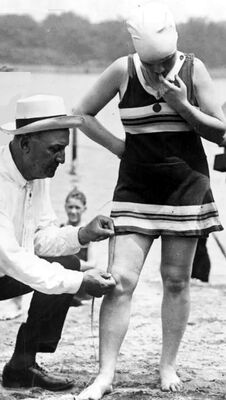Gettysburg
Jul 3, 2017 18:44:06 #
Today in 1863 marked the end of the Battle of Gettysburg, culminating in the failure of Pickett's Charge.
Gettysburg was the the turning point of the war. Historians are still trying to puzzle out how what should have been a Confederate victory turned into a calamitous defeat.
My personal belief is that the battle was lost on the first day, when Confederate General Ewell refused to occupy Little Round Top. There were only a handful of Union defenders, not even a battalion, defending the most vital area of the battlefield. His failure to act led to the destruction of Hood's Division the next day, in a failed attempt to take a position that could have been had for free the first day. Hood's Division suffered more than 50% casualties, and Hood himself was badly wounded.
This set the stage for Pickett's Charge on the third day. Pickett suffered more than 60% casualties. It has been theorized that General Lee, probably the most gifted tactician on either side, suffered a stroke or some sort of cardiovascular event during the first day of the battle. It would explain his giving senseless, destructive orders completely out of character with his usual tactical genius.
Lee ordered two impossible assaults that damaged the Army of Northern Virginia terribly. He ignored sound advice from his Second-in-Command, Longstreet, that would have salvaged the battle and probably resulted in a Confederate victory.
Does anyone else have opinions or theories?
Gettysburg was the the turning point of the war. Historians are still trying to puzzle out how what should have been a Confederate victory turned into a calamitous defeat.
My personal belief is that the battle was lost on the first day, when Confederate General Ewell refused to occupy Little Round Top. There were only a handful of Union defenders, not even a battalion, defending the most vital area of the battlefield. His failure to act led to the destruction of Hood's Division the next day, in a failed attempt to take a position that could have been had for free the first day. Hood's Division suffered more than 50% casualties, and Hood himself was badly wounded.
This set the stage for Pickett's Charge on the third day. Pickett suffered more than 60% casualties. It has been theorized that General Lee, probably the most gifted tactician on either side, suffered a stroke or some sort of cardiovascular event during the first day of the battle. It would explain his giving senseless, destructive orders completely out of character with his usual tactical genius.
Lee ordered two impossible assaults that damaged the Army of Northern Virginia terribly. He ignored sound advice from his Second-in-Command, Longstreet, that would have salvaged the battle and probably resulted in a Confederate victory.
Does anyone else have opinions or theories?
Jul 3, 2017 19:03:40 #
slatten49
Loc: Lake Whitney, Texas
Loki wrote:
Today in 1863 marked the end of the Battle of Gett... (show quote)
Your post pretty much summed up what I have read regarding that battle, Loki. But, I might add that the Union victory at the battle/siege of Vicksburg in the west coincided with their victory at Gettysburg. The Confederate surrender on July 4, 1863, following the siege at Vicksburg, is sometimes considered, when combined with Gen. Robert E. Lee's defeat at Gettysburg by Maj. Gen. George Meade and retreat beginning the same day, the turning point of the war.
Jul 3, 2017 19:12:04 #
Don G. Dinsdale
Loc: El Cajon, CA (San Diego County)
I've read a little about this and a few other battles, and I agree 100%, day one was the biggest mistake, could have saved "The Cause"... Don D.
~~~~~~~~~~~~~~~~~~~~~~~~~~~~~~
~~~~~~~~~~~~~~~~~~~~~~~~~~~~~~
Loki wrote:
Today in 1863 marked the end of the Battle of Gett... (show quote)
Jul 3, 2017 19:18:13 #
slatten49 wrote:
Your post pretty much summed up what I have read regarding that battle, Loki. But, I might add that the Union victory at the battle/siege of Vicksburg in the west coincided with their victory at Gettysburg. The Confederate surrender on July 4, 1863, following the siege at Vicksburg, is sometimes considered, when combined with Gen. Robert E. Lee's defeat at Gettysburg by Maj. Gen. George Meade and retreat beginning the same day, the turning point of the war.
The political ramifications of Gettysburg were far greater, although the fall of Vicksburg was a blow. However, had the Confederates won at Gettyburg, there would have been no Union Army between them and Washington City.
Jul 3, 2017 19:52:52 #
peter11937
Loc: NYS
Loki wrote:
Today in 1863 marked the end of the Battle of Gett... (show quote)
The Union held the high ground, had cover to fire from, and as they were defending and not advancing, they could reload and fire more quickly. Added to your comments, the Confederates were doomed to lose.
Jul 3, 2017 21:22:06 #
On the 2nd day, Longstreet was trying to find the end of the Union left in order to flank the Yankees. He found it. However, seeing a handful of Union flag signalmen convinced him otherwise. He marched on. Had he sent a mere battalion forward against them he would have seen them haul ass away. Those signalmen were alone. He ended up doing a time consuming 180 turn marching back to that same area and then attacked. It was too late. Those signalmen were responsible for the arriving reinforcements that turned a pending defeat into a stalemate.
BTW, the all time best CW computer simulation game is Ultimate General: Gettysburg. Pick either side against the computer.
BTW, the all time best CW computer simulation game is Ultimate General: Gettysburg. Pick either side against the computer.
Jul 3, 2017 21:46:05 #
peter11937 wrote:
The Union held the high ground, had cover to fire from, and as they were defending and not advancing, they could reload and fire more quickly. Added to your comments, the Confederates were doomed to lose.
The Union held the high ground because of Ewell's incompetence.
Jul 3, 2017 22:29:19 #
Loki wrote:
The Union held the high ground because of Ewell's incompetence.
In his message to Ewell, Lee used the words, "if practicable." To Jackson those words would have meant, "take it", but Jackson was dead, Stewart
was out somewhere chasing glory, Lee was probably suffering from the "turkey trots" and Ewell couldn't have known what was in front of him.
The bottom line was that Lee proved no more successful invading the North than a whole slew of Union Generals who tried to take Richmond.
One of my relatives died at Andersonville. He was captured on or about 1 March, 1864. He had volunteered for Dahlgren's ill fated raid on Richmond. He was a member of the 1st Maine Cavalry Regiment.
Jul 4, 2017 11:57:06 #
Loki wrote:
Today in 1863 marked the end of the Battle of Gett... (show quote)
JEB Stuart most certianly deserves a share of the responsibility for the result.
Lack of intelligence about Union positions and movements, from calvery reconnaissance, became a crippling handicap to Lee.
Stuart seems to have felt that raiding a supply train was more important.
Stay Safe, and have a Great 4th!
Semper Fi.
Jul 4, 2017 12:33:09 #
this was not even the plan. lee was marching on washington. a smaller group of confederates ended up in gettysburg looking for horses and any supplies they could get. they got into a fire fight and it escalated with more and more troops coming to their aid.the rest is history. i visited gettysburg many years ago and that is what i learned. i could be wrong but that is what i remember. 

Jul 4, 2017 13:35:36 #
markinny wrote:
this was not even the plan. lee was marching on washington. a smaller group of confederates ended up in gettysburg looking for horses and any supplies they could get. they got into a fire fight and it escalated with more and more troops coming to their aid.the rest is history. i visited gettysburg many years ago and that is what i learned. i could be wrong but that is what i remember. 

If Lee was "marching on Washington" why did he dispatch a corps to take Harrisburg? After Lee's 1862 invasion
those Washington politicians made damn sure that there was enough troops to withstand a Confederate attack.
Lee's mission was to create a Northern backlash against fighting the war any longer.
Lee had no hope of capturing Washington and he knew it.
If you want to reply, then register here. Registration is free and your account is created instantly, so you can post right away.


